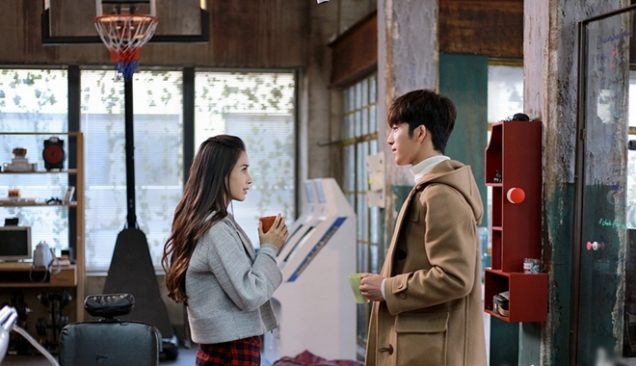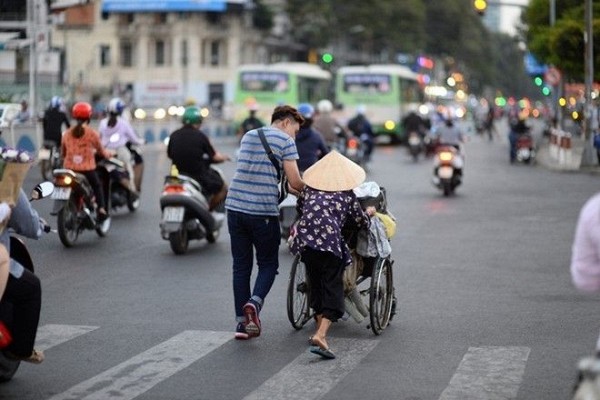The human race is where it is at today because we have constantly been evolving and learning from experiences. In doing so, we have managed avoided failure and shortened the path to success.
Allow us to introduce 10 aphorisms and teachings, that have been drawn from the experiences of our ancestors, that still prove useful to us in the present day.
1. In education, do not fear failure, fear not trying your best
Since ancient times, education has always been seen with high importance, as only with an education can one develop skills and create a foothold for themselves in society. With today’s growing economy, people are now able to invest more in education, in the hopes that their children will be able to realise their ambitions and bring honour to their ancestors.
However, in one’s studies, the greatest fear should be of a lack of will and trying. At present, schools, teachers, and parents spend a lot of effort to impart knowledge onto the next generation but forget to build up determination and perseverance in them for overcoming difficulties. Our ancestors said ‘If you have the will to do, then do’. This is saying stays true for studies - without the will, success will not come. Therefore, despite the amount of investment in education, the nation’s talents are like ‘autumn leaves’.

2. Studying without diligence is learning nothing at all
Learning is all about painstaking work, as knowledge is cultivated over a long period of time and success comes through studying hard. Studying without diligence, without proficiency, is to know everything yet know nothing. Things one believed oneself to being well versed in, is only a mere scratch in the surface. This false confidence means application of knowledge will be lackluster, leading to failure, possibly harming oneself, others and society.
If these people - who may know everything yet lack expertise - become teachers, write books, train and teach others, it can be very dangerous as this influx of rudimentary knowledge will block out the voices of those who would become pillars of society and whose words would be useful to civilisation. Hence, not learning will only be harmful to one’s self, but learning to neglect will bring unpredictable consequences.
3. Listening to the opponent is smart, finding fault within yourself is intuitive, the winner is you because you are stronger
An overwhelming majority of people choose to listen only to words that support them and ignore those who oppose. Our ancestors had a saying, ‘Lương dược khổ khẩu lợi ư bệnh, trung ngôn nghịch nhĩ lợi ư hành’ (Good Medicine is bitter to taste but stops disease, criticism is difficult to listen to but improves work). By learning to be patient and let go of our personal prejudices, as well as listening to the opposing argument, one can set foot into a new realm knowledge and become more intelligent.
There is also the habit of finding a blame for our mistakes, such as the environment or other people. Even at times where the fault is clearly on ourselves to blame, we would still resort to finding external causes for their mistake. Instead of looking for an excuse and choosing to look within, we would find that the cause is our self and that at least a part of that fault lies with us, like how two hands are needed to clap and make noise. In doing so, we gain insight and improve mentally.
Victory is our objective. Victory has many elements - heaven, earth and man – and if you have all three, then there is nothing that is not winning. In order to get those three elements, one would not only need to study but also cultivate Tao. The notion set forth by our ancestors was that the elements of heaven and man were most compatible, and by following the natural pattern, the wisdom becomes clearer, allowing us to understand the connection between heaven, earth and man, along with the laws of nature. However, the biggest obstacle for Taoism is overcoming one’s own habits of comfort, greed, selfishness, anger, conflict and chattiness.

4. The wise can say a thousand things, somewhere they are wrong; the foolish can say a thousand things, and somewhere they are right
(Trí giả thiên lự, tất hữu nhất thất; Ngu giả thiên lự, tất hữu nhất đắc – Sử ký)
Clearly understand this, one can humbly learn from absolutely everyone, even those who are lowly and incompetent. Do not blindly believe someone because of their reputation of intelligence. When facing a problem, listen to the opinions of many people - regardless whether the high or low, wise or foolish - and then think, analyse and reason before making a choice. That is the secret to success.
5. A prosperous nation sees their people as children, a struggling nation sees their people as trash
(Quốc chi hưng dã, thị dân như xích tử; Kỳ vong dã, thị dân như thảo giới – Tam quốc chí)
The people are a nation’s most crucial resource. If they are taken care of like newborns and infants, the resources will be of high quality and the nation will thrive. On the other hand, viewing the people as waste will result in a national resource more useless than a pile of scraps, and the nation will collapse.
6. When drawing a tiger, you only draw skin, it’s hard to draw bones; When knowing a person, you only know their face, it’s hard to know the thoughts.
(Họa hổ họa bì nan họa cốt, tri nhân tri diện bất tri tâm – Tăng quảng hiền văn)
The meaning of this sentence is that one sees things superficially, as it is difficult to determine an object or persons inner nature. Hence, one should not be infatuated with only appearance, but instead observe and analyse people for a period of time, from many angles and under many different lights. In doing so, a realistic image of the person will emerge. In conclusion, a person should not be judged only by their appearance or a single action.

7. Those who forgive are not foolish, the foolish are those who don’t know how to forgive
(Nhiêu nhân bất thị si hán, si hán bất hội nhiêu nhân – Tăng quảng hiền văn)
A person who knows how to forgive, who is able to forgive the fault of others is not only not foolish but extremely intelligent and wise.
Those who cannot forgive and tolerate, first do harm to themselves and if they cannot let go of the sorrow and resentment in their hearts, then they will become sick. The book “Hoàng Đế nội kinh” says “Kinh, Hỷ thương Tâm; Nộ thương Can; Tư thương Tỳ; Bi, Ưu thương Phế; Khủng thương Thận”
This phrase means that being too frightened or too happy can harm the heart, anger can hurt the …, overthinking makes the spleen vulnerable, depression can traumatize the …, and excessive fear can damage the kidney.
People who can tolerate the faults, insults, and disrespect of others – like how the sea tolerates the rivers – have a calm mind like the surface of a lake that is undisturbed by things out of their control. The tolerant person is like a gentleman, unangered by spoiled children who insult them. They have overcome mediocrity and only feel sympathy for the ignorant, angry, resentful and self-harming. There will always be hundreds of enemies in our hearts, but why not learn to throw those stones away and let oneself feel lighter and able to live a happy, relaxed life.
8. When doing business with others, don’t try to take more
(Dữ nhân khiêu mậu dịch, vật chiếm tiện nghi – Chu Tử trị gia)
Nowadays everyone talks about ‘win-win’ cooperation, because they understand the dogma ‘One tree cannot make a forest, but two and much more will’. When two people cooperate, their power and production are not only doubled, but is exponentially multiplied.
The ancient people not only understood this dogma very early on, but also transcended the current model of cooperation for mutual benefit. The saying ‘when doing business with others, don’t try to take more’ means to let others have the larger portion, and we accept less, lose, but then go on to have a better career. The story of Bao Thuc Nha and Quan Trong in Xuan Thu period is a fine example.
Bao Thuc Nha and Quan Trong were good friends who did business together. Bao Thuc Nha had money, so he gave the majority of the profit to Quan Trong, because his family was poor, whilst accepting the less appealing portion. They traded and always split the profits up like this, one more and one less.
Bao Thuc Nha’s subordinates found it annoying and called Quan Trong worthless. Bao Thuc Nha said, ‘You guys are wrong. He has no greed for money. It is only because his household is so poor that he is reliant on that extra money to live so I voluntarily gave him the more profitable share.’
And because of this, both of them would then go on to become integral parts of the success of Te Hoan Cong.
9. The one who flatters and flirts with the rich is the most dishonorable; the one who is prideful and patronizing with the poor is the most despicable
(Kiến phú quý nhi sinh siểm dung giả, tối khả sỉ; Ngộ bần cùng nhi tác kiêu thái giả, tiện mạc thậm – Chu Tử trị gia)
The most noble qualities in a person are in their personality and virtues. Those who blandish the wealthy and condescend the poor are empty inside, knowing only how to follow physical desires and materials, oblivious to what morality and virtues are. Hence, they are the most dishonorable and despicable.

10. Wanting others to know of your good deeds is not true goodness; Not wanting others to know of your bad deeds is true evil
(Thiện dục nhân kiến, bất thị chân thiện; Ác khủng nhân tri, tiện thị đại ác – Chu Tử trị gia)
The virtuous and the wicked, the good and the bad are easy to distinguish. There are people who do charity, but invite a large number of people to participate, and then film, take photos, write articles and promote on social media. This is not true goodwill but under the façade there is a hidden purpose - such as polishing names, gaining new contacts, increasing fame and trying to get appraisal and compliments.
There are also those who do not understand this dogma, despite having a good mind and do good deeds. They choose to blindly follow others leads and do things such as in wildlife reintroduction or housing charity for recognition; these deeds are not honest. Goodwill brings good karma, if there is no true goodwill then there cannot be any good karma. That is why there are many people who devote themselves to doing good deeds but do not have good karma.
An evil act abides by the same idea. A person who murders a thief is an even greater criminal. These people are just as, if not more, abhorrent. However, the truly wicked are those who clean up the evidence, hire murderers, and commit atrocities but conceal them fearing others will know. This is because, like when the devil wears a disguise, the person has given a false meaning and those around him are oblivious to the culprit’s true nature. The victim dies and no one will know, the sin will linger forever and the crimes pile upon one another. This is true evil.
"After filling in the information and clicking to receive the entire document now" Hoai An Vien customer service will contact you.